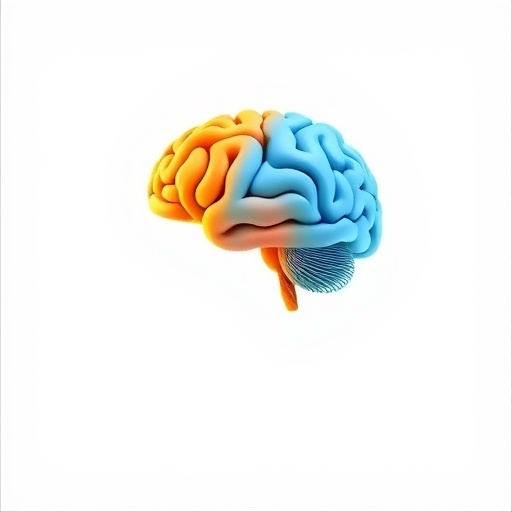Metacognition, the cognitive ability to think about one’s own thinking, plays a pivotal role in shaping human decision-making and behavior. It allows individuals to assess their own thoughts, evaluate their beliefs, and reflect upon their actions. The relationship between metacognition and mental health is particularly significant, with various mental disorders frequently characterized by deviations in metacognitive processes such as confidence, self-reflection, and the understanding of one’s own cognitive operations. These distortions can severely impact daily functioning, leading to difficulties in managing emotions, making decisions, and engaging in social interactions.
Recent studies have shown that addressing metacognitive impairments through therapy can lead to notable improvements in the mental wellbeing of individuals suffering from psychological conditions. For instance, therapeutic interventions aimed at enhancing self-reflection and improving awareness of one’s cognitive biases have shown promise in changing maladaptive thought patterns. This indicates that metacognition can be targeted as a therapeutic modality, providing clinicians with a valuable tool for intervention. However, despite the promising findings, there exist substantial barriers to a cohesive understanding of metacognition among researchers and clinicians.
The disconnect between the fields of cognitive neuroscience and clinical psychology concerning the interpretation and application of metacognitive principles has led to gaps in knowledge and practice. A significant challenge arises from the inconsistent terminology used across disciplines, making it difficult for researchers to align their findings with clinical applications. The varied experimental approaches utilized to assess metacognitive capacities also contribute to the fragmentation of knowledge. As a consequence, the integration of findings from cognitive neuroscience into clinical practices remains limited.
In an effort to bridge these gaps, a newly proposed hierarchical framework for understanding metacognition provides a promising avenue for future research and clinical practice. This framework aims to delineate the multifaceted nature of metacognition, breaking it down into various levels that can be more easily studied and understood within different contexts. By classifying metacognitive processes in a structured manner, researchers can begin to identify where discrepancies arise and how best to address them.
A fundamental aspect of this integration is the recognition that categorical and dimensional approaches to mental health diagnosis can influence our understanding of metacognitive processes. Traditionally, mental health diagnoses have been made based on categorical classifications, placing individuals into discrete categories of disorders. This has resulted in a somewhat rigid understanding of mental health, failing to capture the nuances and complexities of individual experiences. Alternatively, a dimensional approach considers symptoms on a spectrum, allowing for a richer understanding of metacognitive variations among individuals.
The implications of adopting a dimensional framework are profound. By acknowledging that metacognitive capacity can vary widely among different individuals, clinicians can better tailor interventions that address not just the symptoms of mental disorders, but also the underlying metacognitive distortions that may be contributing to those symptoms. This personalized approach can facilitate more effective and meaningful therapeutic outcomes.
Evidence has shown that metacognitive skills can be developed and improved over time, suggesting that therapeutic interventions can yield significant benefits. Training programs designed to target metacognitive aspects, such as enhancing self-awareness and reflection, can equip individuals with tools to better navigate their mental health challenges. Success in such programs has been noted not only in reducing symptoms but also in fostering resilience against future mental health issues.
Collaboration between cognitive neuroscientists and clinical psychologists is essential in creating a comprehensive understanding of metacognition. Close cooperation can lead to the sharing of methodologies and the alignment of research goals, which may ultimately result in breakthroughs in treatment approaches. Interdisciplinary research projects can harness the strengths of both fields, leading to richer insights and innovative therapeutic strategies.
Moreover, the application of advanced neuroscientific techniques can provide valuable data on the neural correlates of metacognitive processes. Brain imaging studies, for instance, can shed light on how different regions of the brain contribute to metacognitive functioning, enriching our understanding of both normal and abnormal cognitive processes. This knowledge can significantly influence how we approach treatment, allowing for biologically informed therapies that are tailored to individual neurocognitive profiles.
As we move forward in exploring the intersection of metacognition and psychopathology, it is crucial to remain aware of the ethical implications surrounding behavioral interventions. As clinicians seek to utilize metacognitive strategies, the importance of informed consent, individual autonomy, and culturally sensitive practices cannot be overstated. Patients must be made aware of the nature of their treatments and the rationale behind the chosen therapeutic approaches.
As we continue to dissect the complexity of metacognition, it becomes evident that this area of inquiry holds immense potential for enhancing our understanding of mental health. The ability to reflect on and evaluate our thoughts and actions is not merely an academic concept; it is a cornerstone of what it means to be human. By prioritizing research and collaborations that aim to integrate cognitive neuroscience with clinical applications, we can forge a path toward improved mental health interventions and deeper insights into the human psyche.
In conclusion, the exploration of metacognition in the context of psychopathology presents a unique opportunity to revolutionize the way we understand and treat mental health disorders. By overcoming the barriers that currently exist and fostering interdisciplinary collaboration, we can illuminate the pathways between thought, cognition, and behavior, ultimately enhancing the lives of those who struggle with mental health challenges. The road ahead is fraught with obstacles, yet the promise of integrating cognitive neuroscience with clinical practices offers a beacon of hope for future advancements in mental health treatment.
Subject of Research: Metacognition in psychopathology
Article Title: Integrating cognitive neuroscience and clinical perspectives on metacognitive mechanisms in psychopathology
Article References:
Seow, T.X.F., Jelinek, L., Moritz, S. et al. Integrating cognitive neuroscience and clinical perspectives on metacognitive mechanisms in psychopathology. Nat Rev Psychol (2025). https://doi.org/10.1038/s44159-025-00503-4
Image Credits: AI Generated
DOI: 10.1038/s44159-025-00503-4
Keywords: Metacognition, psychopathology, cognitive neuroscience, mental health, clinical psychology.




